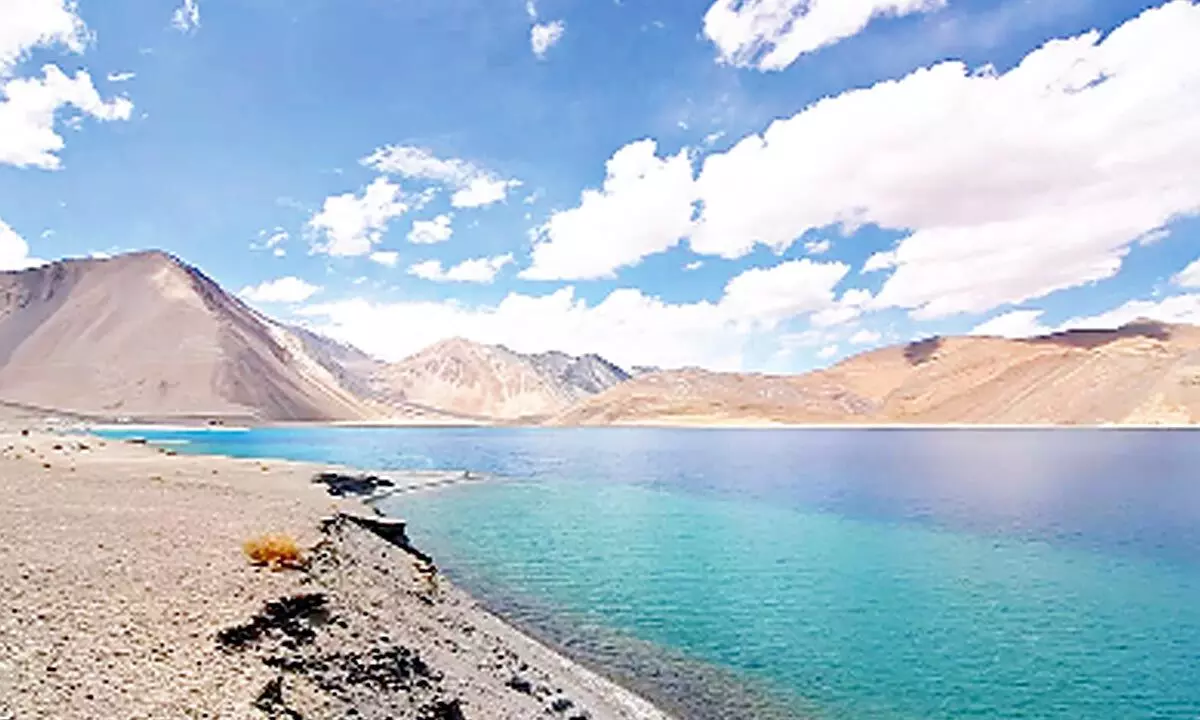New investments could give a fillip to tourism
India is the eighth largest country in terms of contribution to travel and tourism GDP. The tourism industry in India generated $247.3 billion showing a growth of 6.7 per cent during the year 2018, accounting for 9.2 per cent of the total economy.
image for illustrative purpose

India is the eighth largest country in terms of contribution to travel and tourism GDP. The tourism industry in India generated $247.3 billion showing a growth of 6.7 per cent during the year 2018, accounting for 9.2 per cent of the total economy. The sector is expected to reach $492.21 billion in 2028. It is also the third largest foreign exchange earner (FEE) for India. India has a diverse portfolio of niche tourism products which includes cruises, adventure, medical, wellness, sports such as Golf and Polo, MICE (meetings, incentives, conferencing, exhibitions), eco-tourism, film, rural and religious tourism.
The hospitality and tourism industry has been witnessing a healthy growth number and accounted for 7.5 per cent of the GDP. India is a part of the top 100 clubs on Ease of Doing Business (EoDB) and ranks first in the greenfield FDI ranking globally and to strengthen the cruise tourism sector, the Government of India (GoI) has selected Chennai, Goa, Kochi, Mangalore, and Mumbai ports to develop them as cruise tourism hubs. These terminals will have facilities like hospitality, retail, shopping, and restaurants.
Less than three million foreign tourists visited India in 2020, a dip of around 75 per cent as compared to the previous year, due to travel restrictions imposed to control the coronavirus pandemic. "To incentivize stakeholders in the tourism industry, the guidelines for the scheme of Market Development Assistance (MDA) for providing financial support to stakeholders for the promotion of domestic tourism have been modified to enhance the scope and reach of the scheme, to provide maximum benefits to the stakeholders. In addition, promotional activities have been incorporated including online promotions and the extent of financial assistance permissible has been enhanced.
The 100 per cent FDI in the hotel and tourism sector is paving its way to more investments in the country through the automatic route. A 5-year tax holiday has also been offered for 2-4-star category hotels which will be located around UNESCO World Heritage sites (except for locations like Delhi and Mumbai). Special Tourism Zones (STZ) which is targeting to promote tourism and investments in the sector is at the negotiation stage, which if get passed government will provide single window clearance for setting up the zones. An STZ is to be located in tourist cities, destinations, along the coastline.
In 2020, the travel and tourism industry's contribution to the GDP was $121.9 billion; this is expected to reach $512 billion by 2028. In India, the industry's direct contribution to the GDP is expected to record an annual growth rate of 10.35 per cent between 2019 and 2028.
By 2028, Indian tourism and hospitality is expected to earn US$ 50.9 billion as visitor exports compared with $28.9 billion in 2018. International tourist arrivals are expected to reach 30.5 million by 2028. The travel market in India is projected to reach $125 billion by FY27 from an estimated $75 billion in FY20.
In FY20, tourism sector in India accounted for 39 million jobs, which was 8.0 per cent of the total employment in the country. By 2029, it is expected to account for about 53 million jobs. The hotel & tourism sector received cumulative FDI inflow of $15.89 billion between April 2000 and June 2021.
The Ministry of Tourism has been allocated Rs 2,400 crore in the Union Budget which is 18.42 per cent higher than the allocation for the financial year 2021-22, bringing some relief to a sector ravaged by the Covid pandemic.
Of the proposed budget allocation of Rs 2,400 crore, a major portion of the outlay amounting to Rs 1,644 crore is earmarked for the development of infrastructure for tourism and Rs 421.50 crore is meant for promotion and publicity activities.
Under the Master Plan-2041 for the region surrounding the upcoming Noida International Airport in Jewar, a world-class business zone with a 500 hectare park on the lines of the famous Central Park in New York, an 'Olympic City' and an 'Aerotropolis' like New Delhi's Aerocity are included among the other infrastructure projects.
Tourism also has a great potential to accelerate progress across the Sustainable Development Goals (SDGs). If well managed, the sector can generate quality jobs for durable growth, reduce poverty and offer incentives for environmental conservation – a triple-win to help countries transition towards more inclusive, resilient economies. However, without proper safeguards and investments, expanding the tourism market will increase pressure on biodiversity and the ecosystems on which the livelihoods of so many people and local communities depend.

